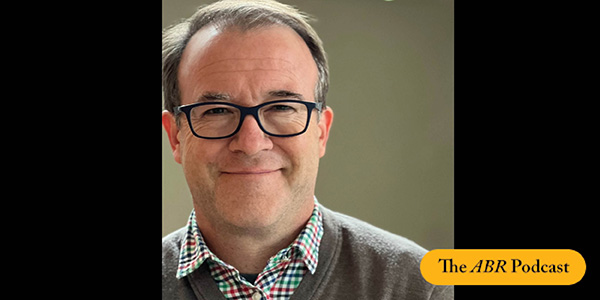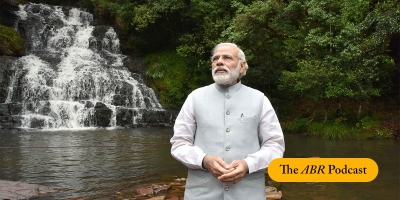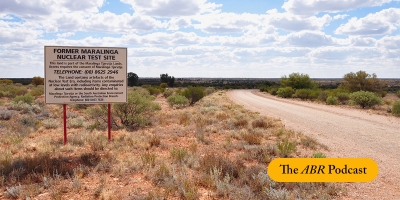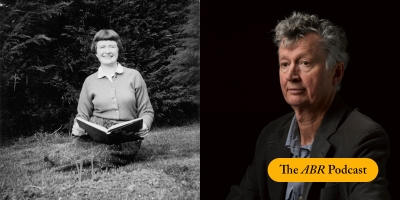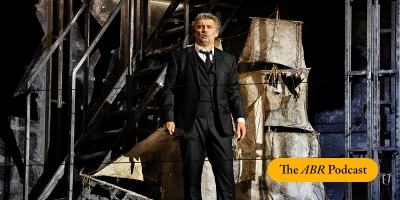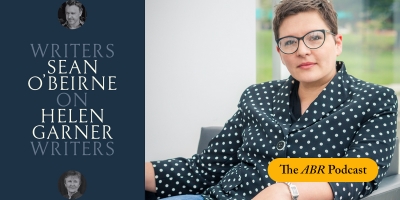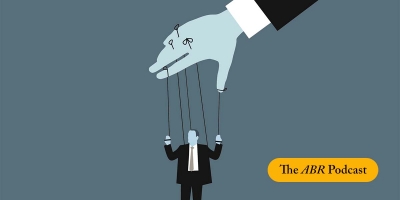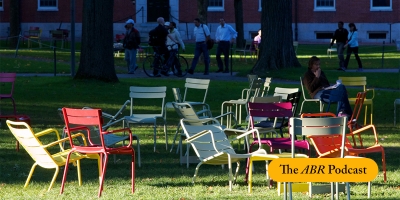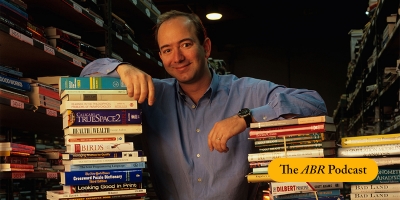Podcast
The ABR Podcast
Released every Thursday, the ABR podcast features our finest reviews, poetry, fiction, interviews, and commentary.
Subscribe via Apple Podcasts, Stitcher, Google, or Spotify, or search for ‘The ABR Podcast’ on your favourite podcast app.
‘Skewering AUKUS: A point-by-point account’
by James Curran
This week, on The ABR Podcast, James Curran reviews Turbulence: Australian foreign policy in the Trump era by Clinton Fernandes. Curran describes Turbulence as ‘an attempt to chart the coordinates of President Trump’s approach to the world’ and to explain how Australia, in ‘scrambling to remain relevant to Washington’, has become what Fernandes describes as a “US sentinel state”.
James Curran is Professor of Modern History at Sydney University and foreign affairs columnist for the Australian Financial Review. His books include Australia's China Odyssey: From euphoria to fear (2022) and he recently delivered a prestigious Boyer lecture, titled ‘Trump’s Gift’. Here is James Curran with ‘Skewering AUKUS: A point-by-point account’, published in the December issue of ABR.
Recent episodes:
A year before he ascended to the prime ministership of India in 1947, Jawaharlal Nehru proclaimed that his nation was ‘a cultural unity amidst diversity, a bundle of contradictions held together by strong but invisible threads’. Yet, in the seventy-five years since India’s independence, secularist tolerance of religious and cultural difference has been eroded by a rising tide of Hindu majoritarianism. In this week’s episode of The ABR Podcast, John Zubrzycki reads his commentary on India’s transformation under Narendra Modi’s leadership ...
... (read more)Of the many pernicious legacies of colonialism, Australia’s servility in the face of Britain’s nuclear arms aspirations is one of the most under-reported and most consequential. In this week’s episode of The ABR Podcast, Elizabeth Tynan reads her essay tracing the clandestine history of, and fallout from, the agreements that allowed the British to test atomic weapons at various sites in South and Western Australia after World War II. By highlighting the Menzies government’s eager consent and the Australian media’s compliance, Tynan shows that far from being a passive victim, Australia was largely complicit in tests that wrought havoc on large tracts of land and on the Indigenous communities who lived there.
... (read more)Ann-Marie Priest’s My Tongue Is My Own, published by La Trobe University Press and reviewed in our June issue, is the first authorised biography of the Australian poet Gwen Harwood (1920–1995). Unsurprisingly, this was not the first attempt to record the life of one of Australia’s most loved and admired poets. In an exclusive feature for ABR, John Harwood reflects on the conflicting motives behind his literary executorship of his mother’s estate – an estate holding the secrets to an at-times fractious marriage between two opposing temperaments.
... (read more)The leaked draft judgment in the case of Dobbs v. Jackson Women’s Health Organization, in which US Supreme Court Justice Samuel Alito proposed overturning the precedent set by Roe v. Wade, has returned abortion rights to the headlines. In this week’s episode of The ABR Podcast, Linda Atkins reads her essay, ‘Shouting Abortion’, which sets women’s right to terminations within the broader context of intergenerational poverty and the class lines of the medical profession ...
... (read more)Conceived during a holiday in the spa-town of Marienbad, Lohengrin stands at the crossroads of Richard Wagner’s operatic oeuvre: it was the last work composed before his political exile (as a result of his participation in the Dresden Uprising) while offering a glimpse of the leitmotivic technique that would become the signature of his late style.
... (read more)The Writers on Writers series aims to tease some of Australia’s literary treasures out of the Aladdin’s cave of canonicity. A collaboration between publisher Black Inc., the University of Melbourne, and the State Library of Victoria, it began in 2017 with Alice Pung’s book on John Marsden and Erik Jensen’s on Kate Jennings. The series now boasts eleven titles, the most recent of which is Sean O’Beirne’s book on Helen Garner ...
... (read more)When Scott Morrison called the federal election in early April, he did so on an apologetic note: ‘I get it that people are tired of politics.’ This was a predictable gesture from the prime minister: his term has been marked by a series of controversies that have raised many questions about his capacity to lead on some of the country’s most pressing issues, though relatively few about his skill in internal party politics.
... (read more)Shortly before Simon Tedeschi’s grandmother, Lucy Gershwin, died sixteen years ago, she recorded a memoir of her wartime years. Gershwin, a Polish Jew, was the only survivor of a family obliterated by the Nazis during the Holocaust. Simon Tedeschi’s powerful essay, ‘This woman my grandmother’, reflects on the moment he decided to read her memoirs and encounter the tragic outlines of a life that remains shaded by a reticence typical of her generation.
... (read more)The Gough Whitlam and Malcom Fraser Chair of Australian Studies was established at Harvard University in 1976 as a diplomatic gift marking the bicentenary of the American Revolution. It was also part of a global strategic initiative that saw Australian Studies visiting professorships spring up in places from Dublin and Copenhagen to Tokyo and Beijing. While not all such professorships have fared equally well, the Harvard Chair of Australian Studies has been bolstered by the financial largesse of its host institution as well as by its record of strong recruitment. In this episode of The ABR Podcast, Joan Beaumont reflects on the history of this unique institutional arrangement ...
... (read more)When Jeff Bezos launched Amazon in 1994, few imagined that eighteen years later the company’s skyrocketing profits would actually launch him into space. What started out as a virtual bookstore run out of Bezos’ garage would turn into an e-commerce giant, forever changing the culture and economics of bookselling. In this episode of The ABR Podcast, James Ley reads his essay-review of Mark McGurl’s new study, Everything and Less: The novel in the age of Amazon. Where McGurl sees Amazon as refreshingly iconoclastic, Ley is more sceptical ...
... (read more)

